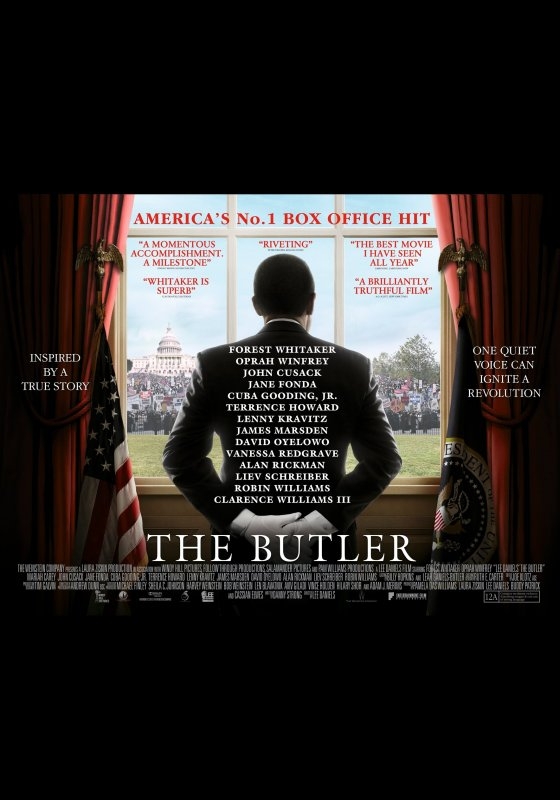Coriolanus

Name five Shakespeare tragedies. Go on, just the first five that come to mind. Got it? Good. You thought of King Lear, Hamlet, Macbeth, Romeo and Juliet and Julius Caesar, didn’t you? Of course you did. Maybe Othello, probably not Titus Andronicus and almost definitely not Coriolanus. Nobody remembers Coriolanus. It’s eleven years since Ralph Fiennes played the valiant but sneering general and tragic hero onstage, and he’s finally bringing the character to a wider audience as both star and (first-time) director; all things considered, he does a cracking job.
In Belgrade Rome, the people are starving and a group of desperate dissidents is preparing to march on the government’s fortified grain depot. The protesters are dispelled by armed police led by the brutal General Caius Martius (Fiennes), a high-born citizen and lifelong soldier who, despite his history of selfless military service, doesn’t bother to conceal his contempt for the common people. Caius Martius is hated and feared, but when a long-standing border dispute with the rebel Volsci forces flares once more into all-out war there is no-one else capable of facing the brutal Volsci commander Tullus Aufidius (Butler). After losing his squad in an assault on the disputed city of Corioles, Martius fights on alone, duels Aufidius to a standstill and successfully repels the Volsci, returning home a hero.
In recognition of his valiance at Corioles Martius is given the honorary surname ‘Coriolanus’, to the satisfaction of his steely and warlike mother Volumnia (Redgrave); however, his wife Virgilia (Jessica Chastain) would rather see him retire from the battlefield. With the current Consul reaching the end of his term, Martius is acclaimed as his replacement by the Senate, but his refusal to pander to the electorate angers the jealous tribunes Sicinius (James Nesbitt) and Brutus (Paul Jesson), who seek to undermine the support won by Martius’ chief supporter Menenius (Cox). As Martius’ reputation is poisoned by the tribunes’ machinations and his own belligerent snobbery, his position grows ever more untenable. He may be trying to wear a politican’s mask, but Martius is still a primal creature of rage and revenge – and the people of Rome would do well to remember what that might mean for their city should they turn him against it…

I doubt directors handling yet another film version of Macbeth or A Midsummer Night’s Dream know how lucky they are – Shakespeare’s most famous plots are etched into most of our minds, giving the audience enough background to let them survive any unwise cuts. Ralph Fiennes will have no such advantage. Happily, Coriolanus crashes through this barrier with machine-gun jammed into the shoulder and teeth bared in a snarl perfectly suited to iambic pentameter. The 2500-year-old story is brought bang up to date within a vividly realised and unashamedly dystopic Rome, all vaguely Soviet architecture and seditious graffiti. The script is perfectly adapted, losing swathes of humdrum and exposition-heavy dialogue in favour of scrolling tickertapes and flashes of TV broadcast which, whilst obviously derivative of Baz Luhrmann’s Romeo + Juliet, work very well.
Ralph Fiennes proves himself a competent director with an eye for dynamic fight scenes, even if he is a little reliant on close-ups and shaky camerawork. Unfortunately, however, his most serious directorial wobble was with himself; although Fiennes resists the temptation to make himself the absolute centre of attention, years of projecting through a) the proscenium arch and b) his Voldemort makeup seem to have left him with a tendency towards overemphasis which almost appears hammy. Elsewhere, Vanessa Redgrave’s imperious Volumnia is a clear shoo-in for a Best Supporting Actress nomination (although it’s a shame the otherwise wonderful Jessica Chastain never manages to get out of her shadow) and Brian Cox is wonderful as a wily mandarin. Even Gerard Butler’s not bad, which I must say I didn’t expect.

Coriolanus is an exciting adaptation which roots a very old play in distinctly modern issues, most notably the concerns surrounding ex-military political leaders and the role of the media in polarising public opinion. Its flaws aside, Ralph Fiennes has produced an intelligent, well-balanced film which distils the emotion of Shakespeare’s text into something new, raw and thrilling.





Recent Comments